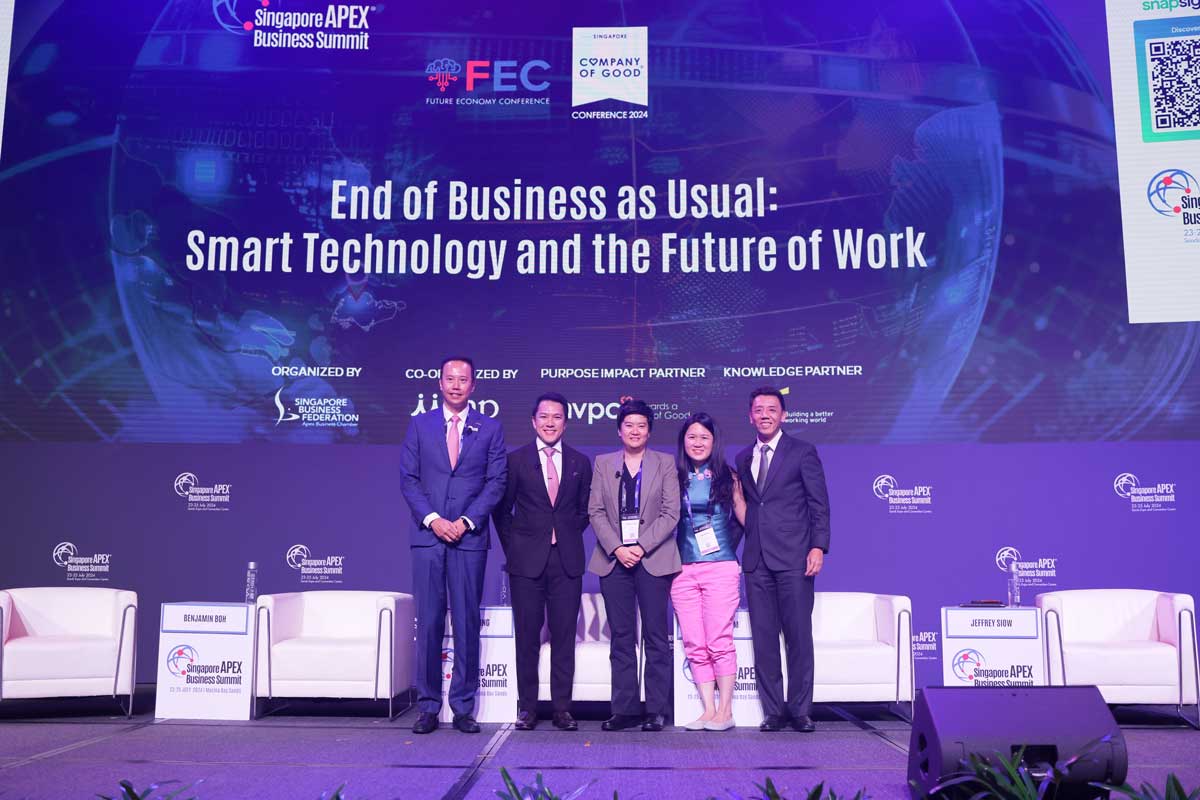
Date published: 23 July 2024
Singapore faces significant demographic challenges with an aging population and low fertility rates, prompting a reevaluation of workplace dynamics. Businesses are increasingly turning to flexible work arrangements—providing employees with greater ability to work outside of their office walls—to not only adapt but thrive in this evolving landscape. This insight, along with others, were shared during a panel discussion at the Singapore Apex Business Summit 2024.
Embracing Demographic Diversity
The shift towards flexible work arrangements has been driven by the increasing need for flexibility and inclusivity in today’s workplace. By allowing employees to work remotely part-time or full-time, organisations can attract and retain talent from diverse backgrounds, including individuals with caregiving responsibilities or disabilities.
Panelist Pamela Chng, founder of Bettr Group, said: "Understanding the needs of our workforce, from demographics to individual abilities is crucial. It's about listening, matching jobs to individual profiles and sometimes redesigning roles to fit. This culture of empathy and non-judgment are foundational in helping employees, whether young individuals navigating social anxiety or others finding their stride, fulfilling their potential with confidence and certainty."
Navigating Challenges with Strategic Planning
While flexible work arrangements offer numerous benefits, they also pose challenges that require strategic planning and proactive management. Ensuring equitable access to resources and opportunities for all employees, regardless of age, is crucial for maintaining cohesion and inclusivity within the organisation. Leaders must prioritise effective communication and leadership development to cultivate a unified organisational culture with an aligned north star.
As Benjamin Boh, Managing Director, McDonald’s Singapore explained: "While there may have been initial discomfort and concerns about costs, our focus remains on long-term sustainability and competitiveness. It's crucial for Singapore's economy and workforce to accommodate diverse needs, fostering an environment where everyone can thrive and contribute."
A flexible work model is more than just working from home; it is also the accommodation of varying schedules and locational preferences to adapt to the evolving needs of Singapore’s workforce.
The Future of Work: A Collaborative Journey Between Employer and Employee
The future of work relies on collaborative efforts between leaders and workers to leverage flexible work arrangements as a strategic advantage. An ecosystem needs to be created where both employers and employees thrive through clear communication and mutual understanding, ensuring flexible arrangements are not just implemented but embraced.
